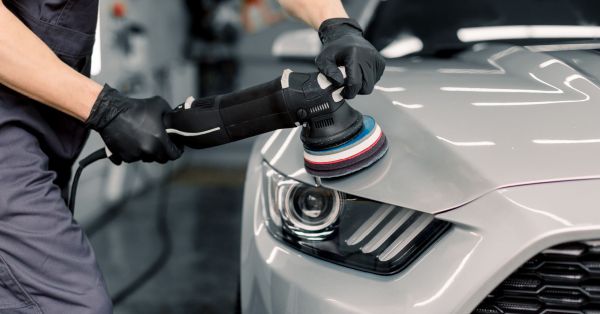When your vehicle’s paint looks dull, scratched, or faded, many people assume the only fix is an expensive repaint. But before you commit to a full respray, there’s another option that could save you time, money, and keep your factory finish intact: buffing and polishing.
At Wright Way Automotive & Collision Repair, we believe in restoring before replacing. Our buffing and polishing services are designed to bring your vehicle’s original shine back to life, removing surface imperfections and revitalizing your paint job—often in just one visit.
What’s the Difference Between Buffing and Polishing?
These two terms are often used together, but they serve different purposes in the auto body restoration process:
- Buffing involves using a mild abrasive compound and a machine buffer to remove a thin layer of clear coat, eliminating scratches, oxidation, and swirl marks.
- Polishing is the finishing step that enhances the paint’s gloss and depth, creating that showroom-quality shine.
Together, they’re like a reset button for your paint—without the high cost or downtime of repainting.
When Buffing and Polishing Are the Right Choice
Not all paint damage requires a respray. In fact, many common issues can be resolved through proper buffing and polishing, including:
- Light to moderate scratches and scuffs
- Swirl marks from improper washing
- Oxidation from sun exposure
- Dull or hazy paint from years of wear
As long as the damage hasn’t penetrated through the clear coat to the base paint, there’s a good chance buffing can fix it.
Professional vs. DIY: Why Experience Matters
You’ve probably seen over-the-counter polishing kits at auto stores. While they may seem tempting, incorrect buffing can burn through your clear coat, worsen scratches, or leave uneven results.
Our technicians use professional-grade compounds, pads, and high-speed buffers tailored to your car’s paint type. More importantly, we know how much pressure to apply—and when to stop—to safely restore the surface without overdoing it.
The Added Bonus: Protecting Your Investment
Buffing and polishing aren’t just about looks—they also help protect your car’s exterior by:
- Removing contaminants that can lead to rust
- Restoring water-repellent properties of the clear coat
- Preparing the surface for wax or ceramic coatings
- Keeping your paint in top shape maintains your car’s value, especially if you plan to sell or trade it in later.
Let Your Vehicle Shine Again
Whether your car has years of road wear or just needs a refresh, our auto buffing and polishing services are a smart, cost-effective way to restore its finish. At Wright Way Automotive & Collision Repair, we treat every vehicle like it’s headed for the showroom floor—because your vehicle deserves to look its best.
Schedule a paint evaluation today and find out if buffing and polishing are the right fit for your vehicle. Call us at (765) 789-6995. A fresh shine may be just one appointment away.

